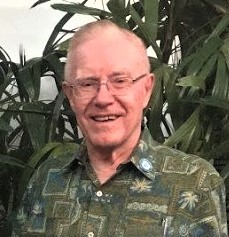Ground Truthing and other Lessons Learned
over a 60 Year Career
Interview with Dr. Ken Smith

Author, Consultant, PM Pioneer, USAF (ret)
Consultant for ADB, the World Bank, UNDP and USAID (ret)
Manila, The Philippines
Introduction to the interviewee
Initially a US Civil Service Management Intern, then a management analyst & systems specialist with the US Defense Department, Ken subsequently had a career as a senior foreign service officer — management & evaluation specialist, project manager, and in-house facilitator/trainer — with the US Agency for International Development (USAID). Ken assisted host country governments in many countries to plan, monitor and evaluate projects in various technical sectors; working ‘hands-on’ with their officers as well as other USAID personnel, contractors and NGOs. Intermittently, he was also a team leader &/or team member to conduct project, program & and country-level portfolio analyses and evaluations.
Concurrently, Ken had an active dual career as Air Force ready-reservist in Asia (Japan, Korea, Vietnam, Thailand, Indonesia, Philippines) as well as the Washington D.C. area; was Chairman of a Congressional Services Academy Advisory Board (SAAB); and had additional duties as an Air Force Academy Liaison Officer. He retired as a ‘bird’ colonel.
After retirement from USAID, Ken was a project management consultant for ADB, the World Bank, UNDP and USAID.
He earned his DPA (Doctor of Public Administration) from the George Mason University (GMU) in Virginia, his MS from Massachusetts Institute of Technology (MIT Systems Analysis Fellow, Center for Advanced Engineering Study), and BA & MA degrees in Government & International Relations from the University of Connecticut (UCONN). A long-time member of the Project Management Institute (PMI) and IPMA-USA, Ken is a Certified Project Management Professional (PMP®) and a member of the PMI®-Honolulu and Philippines Chapters.
Ken’s book — Project Management PRAXIS (available from Amazon) — includes many innovative project management tools & techniques; and describes a “Toolkit” of related templates available for free directly from him at kenfsmith@aol.com on proof of purchase of PRAXIS.
Ken has been a frequent contributor to the PMWJ in recent years. To view other works by Ken Smith, visit his author showcase in the PM World Library at https://pmworldlibrary.net/authors/dr-kenneth-smith/
Interview
Q1. You have worked in the project management profession for more than five decades. How do you describe this profession? What are the joys and challenges respectively? What changes have you witnessed in this profession?
Ken Smith (Smith): 1. Project management (PM) is a vital universal occupation, and its practitioners are active in every conceivable sector of endeavor. Structuring and coordinating personnel, resources and activities within an organization to foster ever more efficient and effective performance in stable situations is a difficult, but necessary, on-going managerial function. Managing deliberate interventions to effect change in the status quo of an organization’s internal &/or external environment to attain pre-defined objectives – which is essentially what project managers do — is even more crucial and challenging.
Project Management has its own ‘body of knowledge,’ tools & techniques and skill requirements, as well as a code of ethics to guide its practitioners; and individuals can even be ‘certified’ as professionals — based on their level of knowledge &/or competence — by various organizations, such as the international Project Management Institute. However, while it behooves incumbents to behave ‘professionally’ when dealing with stakeholders, contrary to popular opinion, IMO – never humble — project management has not yet risen to the level of a ‘profession’ such as law, medicine, engineering, or accounting. The fact is project management practitioners are essentially self-regulated — unlicensed and unfettered by international, national or local government standards and regulating authorities. [Maybe that is for the better?] Whether or not project management should be considered a ‘stand-alone’ profession, or simply a generic skill-set and occupational ‘add-on’ practice for anyone to apply, I leave for others to continue the debate.
In any event, the reality is that there are many ‘amateur project managers’ at large, who – lacking awareness of, or competence with, extant systematic PM tools and skills – expose their organizations to unnecessary risks by their ‘muddling through’’ approach.
2. Throughout my career, I was involved with many projects from diverse sectors in various supporting, as well as managerial, roles. The principal joy I personally derived from participating in project management was its non-routine working environment, with considerable – albeit not absolute – autonomy, and flexibility to be innovative. Also being instrumental making unprecedented things happen while working towards attaining the project’s objectives; and once in a while seeing them actually materialize…
More…
To read entire interview, click here
Editor’s note: This virtual interview was initiated in early 2022 by a former correspondent who could not complete it for unspecified reasons. It is being published here with the permission of Dr. Smith.
How to cite this interview: PM World Journal (2022). Ground Truthing and other Lessons Learned over a 60 Year Career, Interview with Dr. Ken Smith; PM World Journal, Vol. XI, Issue XII, December. Available online at https://pmworldlibrary.net/wp-content/uploads/2022/12/pmwj124-Dec2022-Interview-with-Ken-Smith.pdf









